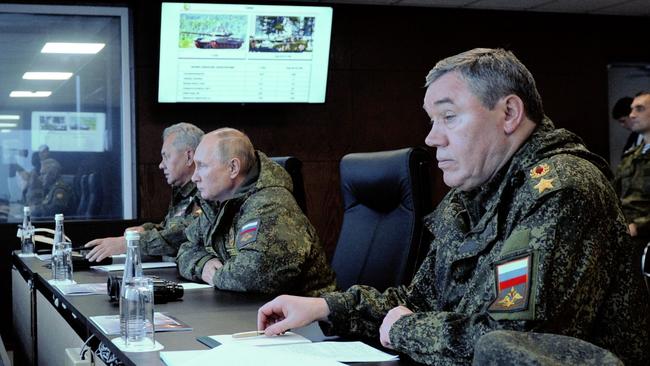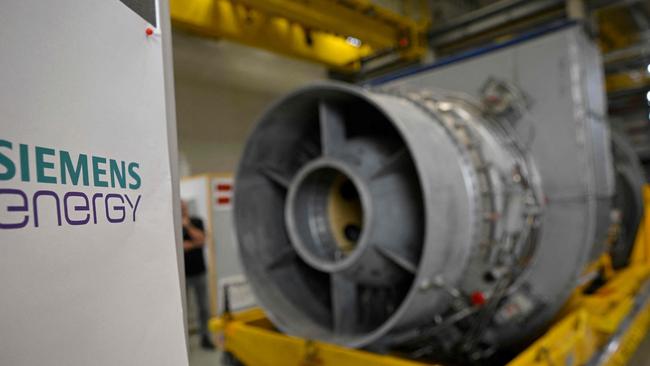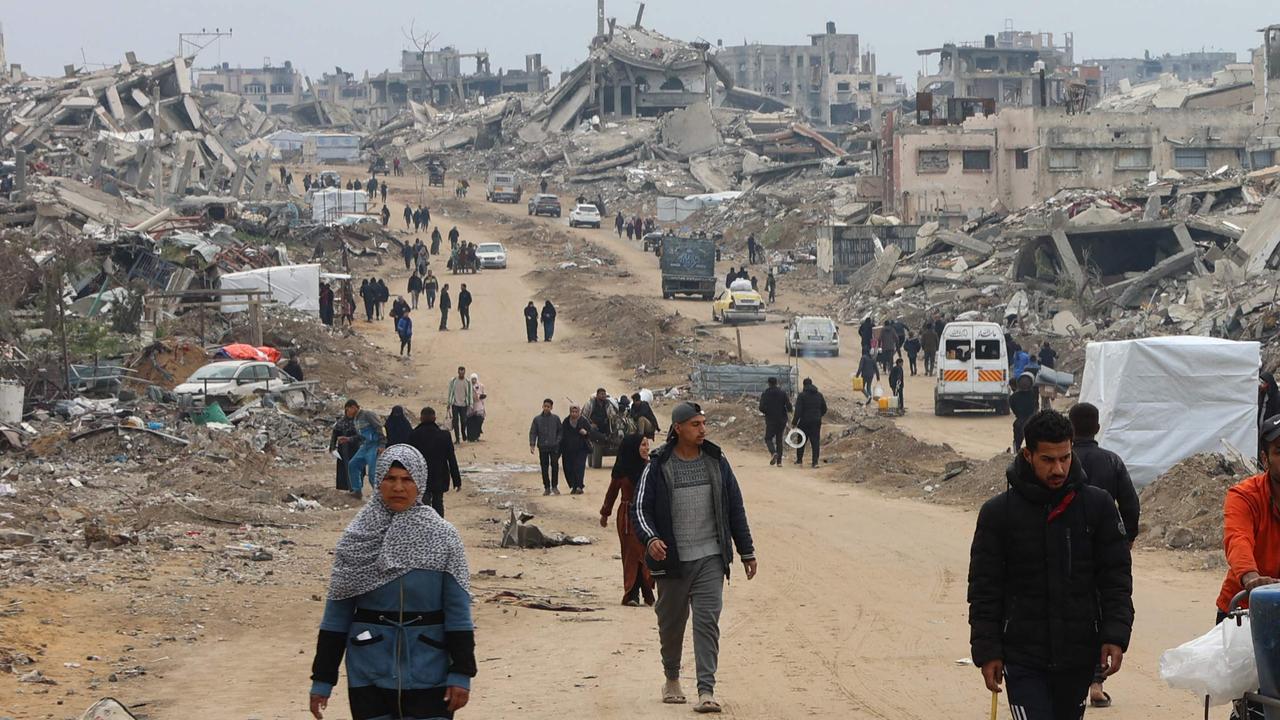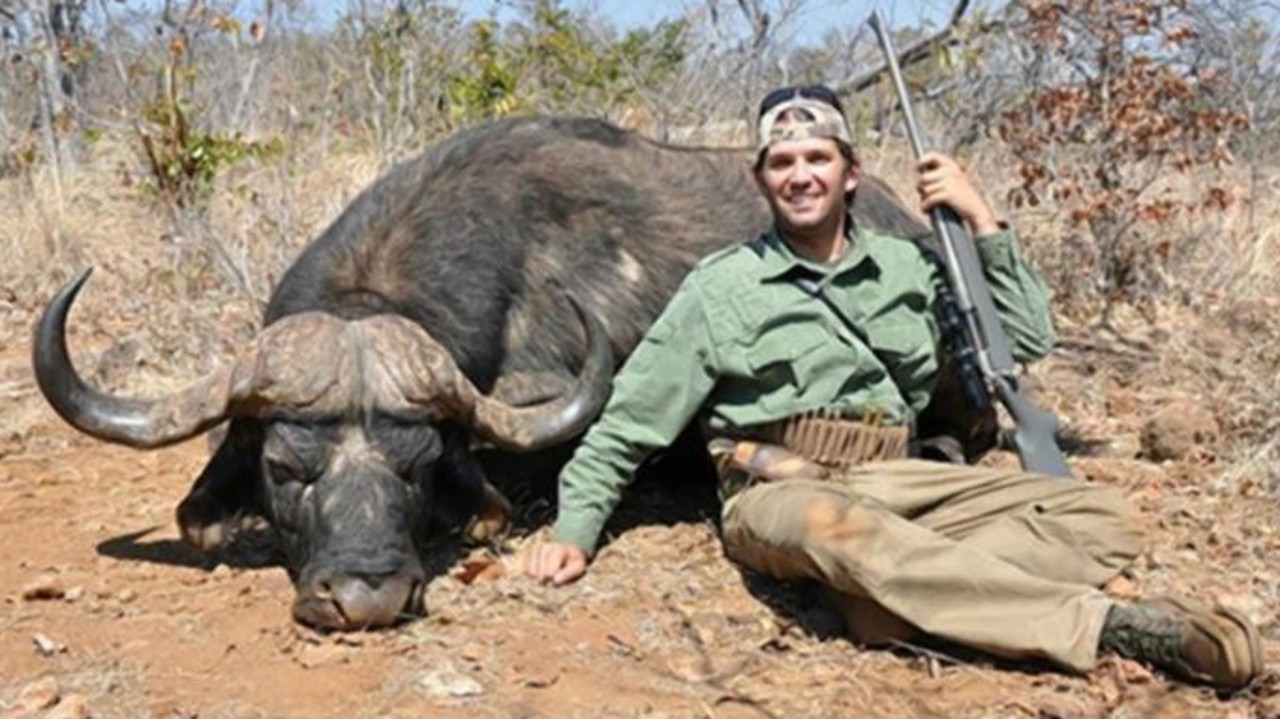Putin’s energy war profits dwarf cost of Ukraine
The Kremlin has earned $240bn from soaring oil, gas and coal sales since Putin sent tanks into Ukraine, swelling the coffers of its war machine.

Russia has earned more than enough from President Putin’s energy war on the West to cover the cost of the Ukraine invasion, researchers said yesterday.
The Kremlin has brought in £141 billion ($240bn) from oil, gas and coal sales since the Russian leader sent tanks across the border six months ago, according to the Centre for Research on Energy and Clean Air (Crea), a Finnish think tank. In comparison, it has spent an estimated £86 billion on the war, it added. The exact figure is a state secret.
Soaring energy prices meant that the Kremlin was able to swell the coffers of its war machine even as it slashed gas deliveries to Europe in retaliation for the sanctions levelled against it.
“Russia has cut gas exports to the EU by 75 per cent, in an attempt to blackmail Europe. Yet the increases in gas prices have meant that the EU is paying Russia as much for gas as a year ago,” Crea wrote. It said tariffs or price caps were needed to curb Russia’s profits.
The European Union has paid Moscow £75 billion for gas and oil deliveries since the start of the war, with Germany alone spending more than £16 billion. Russia has received another £31 billion from China – which has offered lukewarm support for Putin’s invasion – over the same period.

The EU has no plans to stop buying Russian gas, which usually accounts for 40 per cent of its annual consumption. However, on Friday Moscow shut down the Nord Stream 1 pipeline, Europe’s main supply route, claiming that a turbine at a compressor station had developed an engine oil leak. The move was widely seen as an effort to weaponise energy supplies.
Vitaly Markelov, a senior executive at Gazprom, the Russian energy giant, told Reuters yesterday that the pipeline would remain shut until it was repaired by Siemens Energy, the German company that usually services Nord Stream. Gazprom said last week that western sanctions had prevented Siemens from carrying out regular maintenance.
However, Siemens has said that an oil leak would not be grounds to close down the entire pipeline, which runs through the Baltic Sea. “We cannot comprehend this,” it said. “Such leaks do not normally affect the operation of a turbine and can be sealed on site.”
Pro-Kremlin media have promoted a slick online video warning that Europe could freeze this winter without Russian gas. “Winter will be big, only twilight and snow,” went the lyrics to the song that accompanied the video, which depicted frozen landscapes. It was unclear who produced it.
Yevgeny Popov, an MP and state television presenter, wrote on social media: “Europe depends on Russia, this needs to be understood. We have been politely warning ‘Hello, Anglo-Saxons, you will probably freeze to death soon’.”
The G7 group of advanced economies announced last week that it would back a global price cap on Russian oil in an attempt to deprive the Kremlin of funds for its “war of aggression” in Ukraine.
The group – Britain, Canada, France, Germany, Italy, Japan and the United States – say they want as many countries as possible to sign up but analysts say it is unlikely that China or India will participate. The Kremlin has warned that it will retaliate by halting oil supplies to countries that agree to the deal.
The EU has, at least, stopped buying Russian coal, but it will not phase out oil imports entirely until the end of the year, with exceptions for some countries such as Hungary that rely heavily on Russian oil.
Prices soared in the first days of the war but have since fallen. Britain cut imports of Russian oil and gas to zero in June, according to government statistics. It compensated by increasing imports of oil from Saudi Arabia, Kuwait, the Netherlands and Belgium. Last year Russian imports made up 4 per cent of gas, 9 per cent of oil and 27 per cent of coal used in Britain.
Gazprom said yesterday that China will begin paying for Russian gas in roubles and yuan instead of US dollars, as Moscow seeks to strengthen ties with Beijing and reduce its reliance on the dollar in trade and banking.
Alexei Miller, the head of Gazprom, announced that Russia would begin boosting gas supplies to China through its 1,865-mile Power of Siberia pipeline. It has used the pipeline to deliver gas to China since 2019 and signed a £32.5 billion extension to the deal on the eve of its invasion of Ukraine.
In another pivot eastwards, Russia is looking to North Korea to supply it with missiles to replenish its war effort, American spies have said. The development follows earlier reports that Iran too is backing Putin’s war in Ukraine by supplying military drones.
In declassified documents first reported by The New York Times, US intelligence said that a deal is under way to buy millions of artillery shells and rockets from Pyongyang.
The isolated rogue state has also expressed interest in sending construction workers to Ukraine to help rebuild cities that have been devastated by the invasion, according to the Russian ambassador in Pyongyang.
North Korea and Syria are the only two countries to have followed Russia in recognising the independence of two Kremlin-backed separatist region in eastern Ukraine’s Donbas region.
The Times


